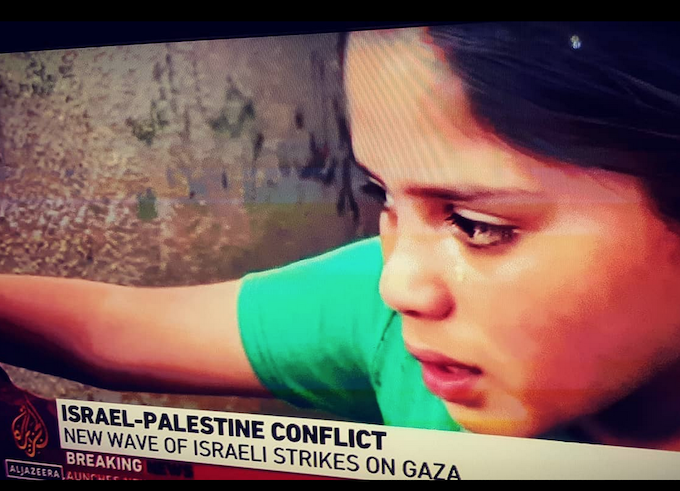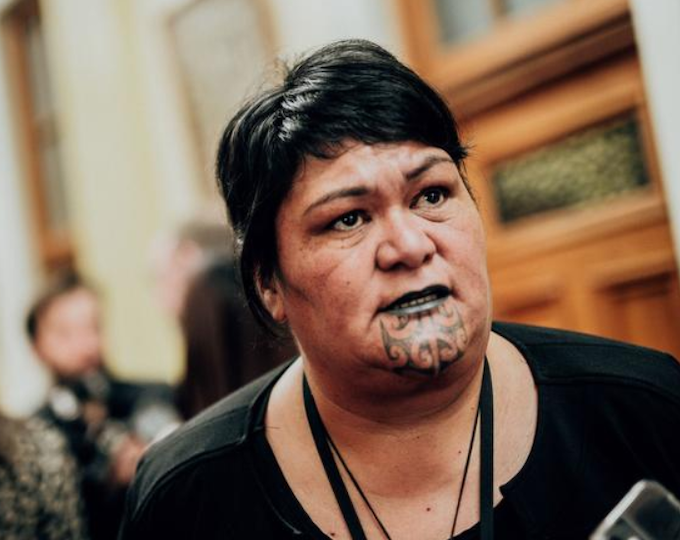
ANALYSIS: By Geoffrey Miller
So far, the New Zealand government has been remarkably silent about the Gaza-Israel conflict. Foreign Minister Nanaia Mahuta could be helping meditate for peace, Geoffrey Miller writes.
The growing Gaza crisis is testing Nanaia Mahuta’s recent assertion that New Zealand has an independent foreign policy.
The conflict between Israel and Hamas-controlled Gaza could be a golden opportunity for Mahuta to take the lead and forge her own path on the world stage.
New Zealand could be following Norway’s example and helping to broker a ceasefire and mediate wider peace attempts in the region.
- READ MORE: Ghahraman condemns ‘disappointing’ NZ response over attacks on Gaza
- Gaza death toll nears 200 amid surge of Israeli raids
- Palestinians in NZ stage rallies protesting against Israeli ‘brutality’
- Other Israel-Palestine conflict reports
But if anything, New Zealand’s response to the growing Israeli-Palestinian crisis to date appears to be slower and lower-key than that of its traditional English-speaking partners.
As of Monday morning, Mahuta’s public reaction appears to have been largely limited to a tweet and – in diplomatic terms – a fairly standard, 180-word written statement.
🇳🇿 is deeply concerned about the deteriorating situation in Jerusalem and Gaza. We call for rapid de-escalation from 🇮🇱 and 🇵🇸. We call on Israel to cease demolitions and evictions and for both sides to halt steps which undermine prospects for a two state solution.
— Nanaia Mahuta (@NanaiaMahuta) May 11, 2021
Mahuta has largely echoed the calls of others calling for de-escalation in the crisis.
Notably, she does not appear to have given any TV or radio interviews about the topic.

Late PM comments
For her part, Prime Minister Jacinda Ardern’s first comments on the crisis appear to have been made in a scheduled weekly TV interview on Monday morning – nearly a full week after Israel began launching airstrikes on Gaza, in response to the firing of rockets into Israeli territory by Hamas.
Ardern, who talked of her “despair” at the conflict, seems to have been the last of the Five Eyes leaders to comment on the crisis publicly.
Overall, it appears the government would prefer not to become involved in a distant conflict that – to many – appears intractable and unsolvable.
Other NZ parliamentarians – with the notable exception of Green MPs, especially Golriz Ghahraman – appear to be taking much the same position. According to Hansard, the conflict did not even rate a mention in the New Zealand Parliament last week – in stark contrast to its Australian, British and Canadian counterparts, which all debated the issue.
Neither did New Zealand’s public statements differ greatly in tone or substance from those made by other Five Eyes countries.
Marise Payne, Australia’s Foreign Minister, called for de-escalation at a joint press conference with US Secretary of State Antony Blinken in Washington on Thursday. And Canada and the United Kingdom have both have issued similar statements at prime ministerial and foreign minister level.
Mediation role?
Other countries are trying to find a solution to the crisis, including Egypt, Qatar, Russia and the US.
Each country has its own potential advantages in mediation: Qatar and Egypt have traditionally held the ear of Hamas, for instance, while Israel is most likely to listen to its closest ally, the United States.
But there is plenty of scope for others to become involved.
For example, China last week worked with non-permanent United Nations Security Council (UNSC) members Tunisia and Norway in repeated attempts to try and find agreement on a joint statement on the crisis – efforts that were ultimately blocked by the United States.
New Zealand, too, could also play a more active role in brokering a solution.
Ardern’s heartfelt response to the conflict on Monday morning resembled that of a political commentator and observer, rather than of a participant in international affairs.
The conflict was tragic, but ultimately for others to solve – or at least that was the impression she gave.
More active earlier role
But New Zealand has played a more active role in the Israeli-Palestinian conflict before. As Professor Robert Patman pointed out on Sunday, New Zealand co-sponsored UNSC Resolution 2334 in 2016 that condemned Israeli settlements in the West Bank. The move prompted Israel to recall its ambassador from Wellington and sever diplomatic ties with New Zealand for six months as a symbolic punishment.
Despite this history, New Zealand still has a good chance of being seen as an honest broker by all parties.
With most other smaller Western democracies falling under the EU’s umbrella, New Zealand is one of only a handful of countries with the credibility and neutrality to talk to both sides.
Palestinians in #NZ stage #rallies protesting against #Israeli ‘brutality’ #Palestine #PalestineBleeding #PalestineUnderAttack #NakbaDay2021 #AsiaPacificReport #humanrightshttps://t.co/ty6SF2AMkz pic.twitter.com/G4cELFe7dt
— David Robie (@DavidRobie) May 16, 2021
There are other helpful factors.
The fact that New Zealand has recently distanced itself from the Five Eyes alliance – and New Zealand’s overall good working relationship with China – would help to remove any impression of bias towards a particular side.
Moreover, New Zealand has designated only Hamas’s military wing as a terrorist entity, rather than the organisation as a whole – unlike the EU, US, Canada and Japan.
And Jacinda Ardern’s own personal star power and diplomatic clout – as shown again by her leadership of the Christchurch Call meeting at the weekend – would also help New Zealand win friends and influence people at the negotiating table.
Nordic template?
A template for New Zealand’s involvement could come from another small democracy – Norway. The Nordic country – also a ‘team of five million’ – has remained an active player in the Israeli-Palestinian peace process since the Oslo Accords were signed in 1993.
In the current crisis, Norway is again trying to help – its top diplomat Tor Wennesland is playing a leading role, under secondment to the UN.
Stop the fire immediately. We’re escalating towards a full scale war. Leaders on all sides have to take the responsibility of deescalation. The cost of war in Gaza is devastating & is being paid by ordinary people. UN is working w/ all sides to restore calm. Stop the violence now
— Tor Wennesland (@TWennesland) May 11, 2021
For New Zealand, former Labour leader David Shearer – who has extensive experience in the Middle East and once headed the UN Office for the Coordination of Humanitarian Affairs in Jerusalem – could be the ideal equivalent appointee.
David Shearer with children in Koch
David Shearer could be an ideal choice for a mediation role in the Israeli-Palestinian conflict, Geoffrey Miller writes. Photo: Supplied
Shearer is now back in New Zealand after finishing up at his job as the head of the UN mission in South Sudan – and he spoke at length about the Gaza conflict in a TV interview on Sunday.
Could New Zealand be the Norway of the South?
Absolutely – if it wants to be.
Geoffrey Miller is an international analyst at the Democracy Project. He has lived and travelled extensively in the Middle East and is a fluent Arabic speaker. This article is republished under a community partnership agreement with RNZ.











































